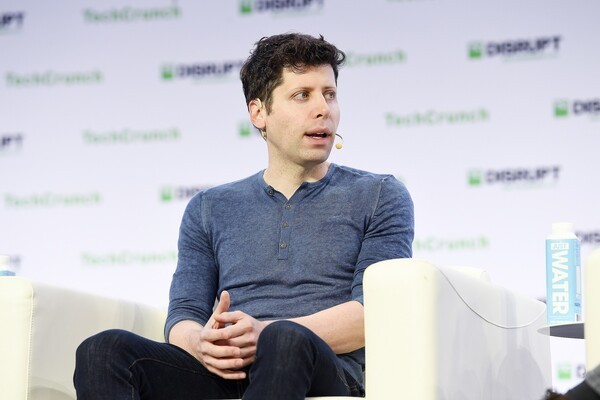OpenAI has been ranked the second most likely artificial intelligence company to collapse in an informal survey of Silicon Valley founders and investors. The result has reignited debate over whether the industry is entering a dangerous bubble driven by rapid growth and unsustainable spending.

Why OpenAI Was Labeled a High-Risk Company
The survey was conducted at the Cerebral Valley AI Summit in San Francisco, where more than 300 entrepreneurs and investors participated. Despite OpenAI’s reputation as a transformational force behind ChatGPT, insiders argue that the company’s explosive growth has become a risk factor of its own.
The ranking is being interpreted as more than a casual opinion poll. It is seen as a warning signal that the AI sector may be approaching the limits of sustainable expansion.
Perplexity Ranked No. 1 as Investors Warn of Overheating
The company viewed as most likely to falter was Perplexity, a fast-growing AI search startup often described as a potential challenger to Google. The firm’s valuation has surged to an estimated 14 to 50 billion dollars after a series of major investments.
Investors cited Perplexity’s soaring valuation, uncertain business model and costly infrastructure needs as key reasons for its top risk ranking. Business Insider reported that Perplexity has become a textbook example of an AI bubble as investor enthusiasm rapidly outpaces underlying fundamentals.
The fact that Perplexity ranked first and OpenAI ranked second supports the view that search driven and chatbot centric AI companies are at the center of current bubble concerns.
High Revenue and Higher Costs The Gap Is Growing
According to projections from The Wall Street Journal, OpenAI is expected to generate about 13 billion dollars in revenue this year. However, the company is also projected to spend around 9 billion dollars, with infrastructure expenses rising exponentially.
Long term forecasts are even more alarming. Analysts expect OpenAI’s cumulative losses to reach 74 billion dollars by 2028 as GPU and cloud costs continue to soar faster than revenue growth.
These numbers have fueled industry wide debate about whether OpenAI’s business model can sustain the pace of its technological ambitions.
The GPU and Cloud Supply Loop A Structural Vulnerability
OpenAI has signed long term infrastructure contracts worth an estimated 1 trillion to 1.4 trillion dollars with companies including Nvidia, AMD, CoreWeave, Amazon Web Services and Microsoft. Experts argue that this illustrates how the generative AI ecosystem has become heavily concentrated around a small number of chip and cloud suppliers.
Some analysts describe this as a capital loop centered on OpenAI. They warn that any slowdown in demand could cause shockwaves across the entire investment chain.
OpenAI’s deep reliance on this cycle is seen as one of the reasons it was ranked so high on the risk list.
A 300 Billion Dollar Valuation and a Growing Disconnect
CB Insights values OpenAI at roughly 300 billion dollars. Critics say that the figure does not reflect the financial strain caused by the company’s rapidly expanding infrastructure costs. Even so, OpenAI ranked second among private companies that survey participants said they most want to invest in, highlighting its unusual mix of high risk and high appeal.
Sam Altman Responds to the Skepticism
OpenAI CEO Sam Altman responded during an appearance on the podcast In The Arena. He said the company’s actual revenue is significantly higher than market estimates and rejected the idea that OpenAI is on shaky ground.
Altman emphasized that technological leadership and infrastructure scaling are more important than short term profitability. However, many in Silicon Valley remain cautious and argue that although OpenAI has unmatched technical capabilities, it may also be among the first companies to face a major shock if market conditions shift.
by Ju-baek Shinㅣjbshin@kmjournal.net
- Can Google’s Gemini 3 Become the Plot Twist That Restores Its Lost AI Dominance?
- Musk, Bezos, Google: The Race to Build AI Data Centers in Space Has Begun
- “ChatGPT Now Supports Multi-Person Conversations”… OpenAI Pilots ‘Group Chat’ in Korea
- Masayoshi Son’s AI Gamble: Selling Nvidia, Going All-In on OpenAI
- “ChatGPT Causes Mental Illness”...OpenAI Faces Class Action Lawsuit in the U.S.
- OpenAI’s ‘Sora’ Hits 470,000 Downloads in a Day on Android - Accelerating the Popularization of AI Video Generation
- OpenAI Eyes Record-Breaking $1 Trillion IPO
- Microsoft Ignite 2025: The Age of the AI Turning Point
- Nvidia's H200 May Get Green Light for China as Trump Administration Debates Export Policy
- OpenAI Announces End of GPT-4o API Support in 2026 as the Countdown Begins for Its Flagship Multimodal Model

![[동학] 카카오톡 친구탭, 결국 12월 롤백… “격자형 피드는 선택 옵션으로”](https://cdn.kmjournal.net/news/thumbnail/custom/20251126/5517_10550_1119_1763853080_120.jpg)


![[테크 칼럼] 제미나이3, GPT-5.1을 넘다…AI는 이제 ‘일을 대신하는 시대’로 간다](https://cdn.kmjournal.net/news/thumbnail/custom/20251126/5457_10454_4847_1763621329_120.jpg)



![[낭만 테크 시대] AI 대항해 시대](https://cdn.kmjournal.net/news/thumbnail/custom/20251126/5603_10714_4334_1764121414_160.jpg)

